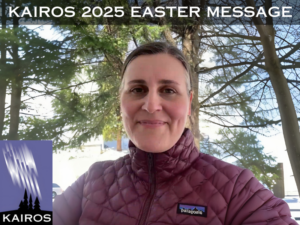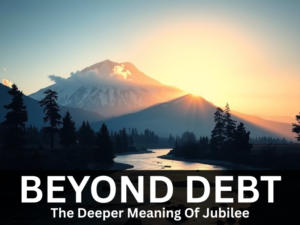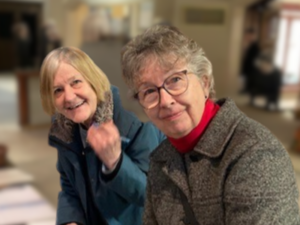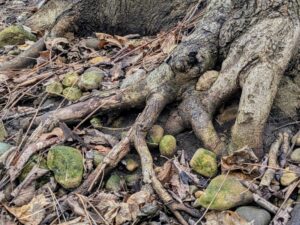Spirited Reflection: Unbinding All Saints
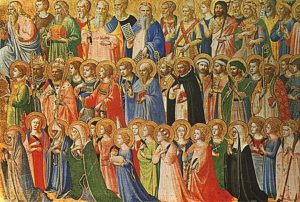
Recently, news has come to us from a global partner, news of the increased threat of violence to them for their important work for human rights and peace. The situation is so fraught that I feel unable to share the place and person publicly for fear of further risk.
The person asks for prayers, and specific advocacy, which, as KAIROS, we are attempting to fulfil. And while there is a heart wrenching fear in the message, there is also an absolute commitment to keep moving forward in the transformative work, the work required by the injustice and conflict in the community they serve.
The choice to risk one’s life, in the face of clear and present danger, is an awing and humbling one. I have come to learn that for people of faith, it often turns on two main beliefs:
First that the promise of transformation offered by God—at the most profound, the promise of life over death–is not just for some far away heaven, but for this hurting and broken earth. This is an almost impossible hope that transformation—to human rights, to peace, to well being—that this can be, it must be, here in this place and time.
And second, that those who have passed before—the peoples’ martyrs, the radical saints, the holy troublemakers—all those who have passed before, continue to provide essential witness, and tangible help in the justice work undone. They are in hearts and in our very struggles, indispensable memory in the movements that journey on.
It is that impossible hope and indispensable memory that becomes the fertile ground for courage. And if they can say yes in such places of crisis, if our partners can make that choice to serve where the risk is their lives–how can we not join them? Audacious, resilient, persistent—KAIROS global partners’ decision to collaborate in God’s transformation is also our challenge and invitation.
In the readings for All Saints day, we have two visions of worlds transformed by the action of God. In John 11:32-44, we are invited in to the intimate world of grieving sisters. And in Isaiah 25:6-9, we see the big-picture vision of a holy mountain. John and Isaiah—both narrate the promise of God for healing and justice, for life over death.
In John’s world, we feel the despair at the senseless, surprising death of a young person–the unexpected death of one loved deeply as “Jesus loved Martha and her sister and Lazarus” (11:5). The pain is palpable. But the story does not end there…
“He cried with a loud voice Lazarus come out! And the dead man came out, his hands and feet bound with strips of cloth, his face wrapped in a cloth and Jesus said to them ‘unbind him and let him go’” (11:43-44). For John, there is something about God in Christ that brings life and possibility and freedom in the hardest, the most despairing time. There is something in the heart of God that offers impossible hope.
In Isaiah’s vision, Chapter 24, we can feel the desolation and terror, “the earth is utterly broken…torn asunder…violently shaken” (24:19). The destruction is palpable. But the story does not end there…
For “YHWH will make for all peoples a feast of rich foods…YHWH will destroy on this mountain the shroud cast over all peoples…and then the Lord God will wipe away the tears from all faces.” (25:7, 8). For Isaiah, there is something about God that brings life and possibility and wellbeing out of the hardest, most desolate time. There is something in the heart of God that brings impossible life.
KAIROS global partners may not speak in the stories of John or the poetry of Isaiah, but their vision of world transformed is as bold as that of the disciple and the prophet. So often, I see their actions as demonstrations of confidence that God can truly do more than we can ask or imagine.
Our partners are assured that in the struggle they are not alone. In fact they insist upon it. Here we might, in consort with the good work of Elizabeth Johnson,[1] claim and make inclusive the powerful symbol of the communion of saints. This communion—might we say social movement—is at one level of all living people of love and justice around the globe. We are invited into acts of justice that demonstrate our companionship with all who struggle for human dignity in the Spirit of God. We fail, we are imperfect. And we are invited, or compelled, again.
But that communion also includes an even more profound unity, that continuity with all who have gone before whose hearts were dedicated to justice. Our partners insist that the martyrs be “unleashed”—from death, from time–to be encouragement in the now—to lend their courage, their dignity, their hope to embolden the ongoing struggle.
Indispensable memory that offers allyship. As Jesus said, “Unbind him” (John 11:44). Unbind the fallen to be memory and hope, to be accomplices and companions, to catalyze our current struggles with their enduring witness. As Johnson says: “Accessed through memory and hope, the communion of saints may be believed only by being practised in faithful deeds of discipleship.”[2]
We remember Berta Caceres, an Indigenous leader murdered in Honduras for defending the peoples and the waters. She is sign and symbol of the chaos and oppression that pushes migrants today into dangerous journey. Of Berta, our partners and colleagues say: “she did not die, she multiplied.”
A few days ago, we hosted two incredible women land and life defenders – Ysidora Acuna from Peru and Angelica Choc from Guatemala. I paraphrase their words here “We are land and life defenders, chosen. Do not feel discouraged and dizzy on this path. Remember we have the strength, tenderness and spirit of each other and our ancestors.” Connection among the living, continuity with the dead—communion to embolden the movements that defend life.
Indispensable memory, impossible hope—This memory and hope comes from the witness of Isaiah and John, but also from the lives of people throughout the ages who have risked and persevered to bring about God’s dream of justice. We need to unbind those in the cloud of witnesses, the beautiful troublemakers from biblical times to our own. When we recall them, unleash them, bring them to bear as companions in hope, they help lift us up in our own journey toward God’s dream of justice.
For Christians, the centre of our faith is the indispensable memory of Jesus, the Christ who is our impossible hope. Christ’s body is grieving, suffering people, broken and aching earth, but also the “feast of well aged wines” (Isaiah 25:7) and the bread to sustains all. When we gather as people of faith, we invoke the memory of a death that was not the last word, and a rising that brings life, love, inclusion, and justice—as we but collaborate with that hope. We gather to unbind the Christ who is our transformation, who not only wipes the tears, but brings down principalities and powers that cause the pain. In ecumenical movements, churches and communities, we strive to be a conspiracy of that hope in action.
On All Saints Day, may we remember the saints and sinners, the ordinary and the extraordinary, the meek and the courageous—all who have gone before in pursuit of the justice of God. We claim their indispensable memory as our impossible hope. And we say….presente.
Jennifer Henry is the Executive Director of KAIROS and has worked for nearly 25 years in ecumenical social justice on behalf of the churches.
[1] Elizabeth A. Johnson. Friends of God and Prophets: A Feminist Theological Reading of the Communion of Saints. Continuum, 1998.
[2] Johnson, Friends of God, 9.









